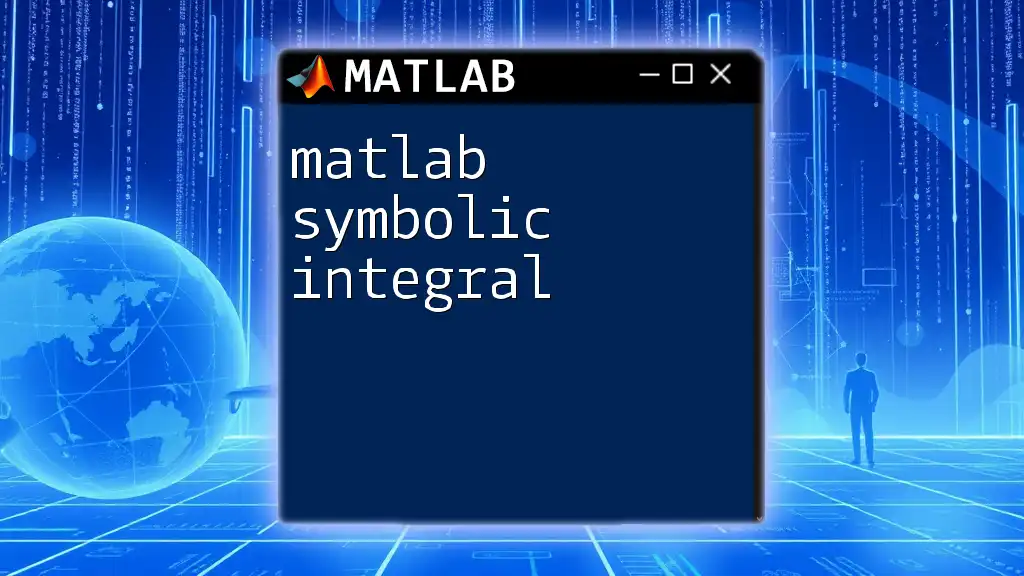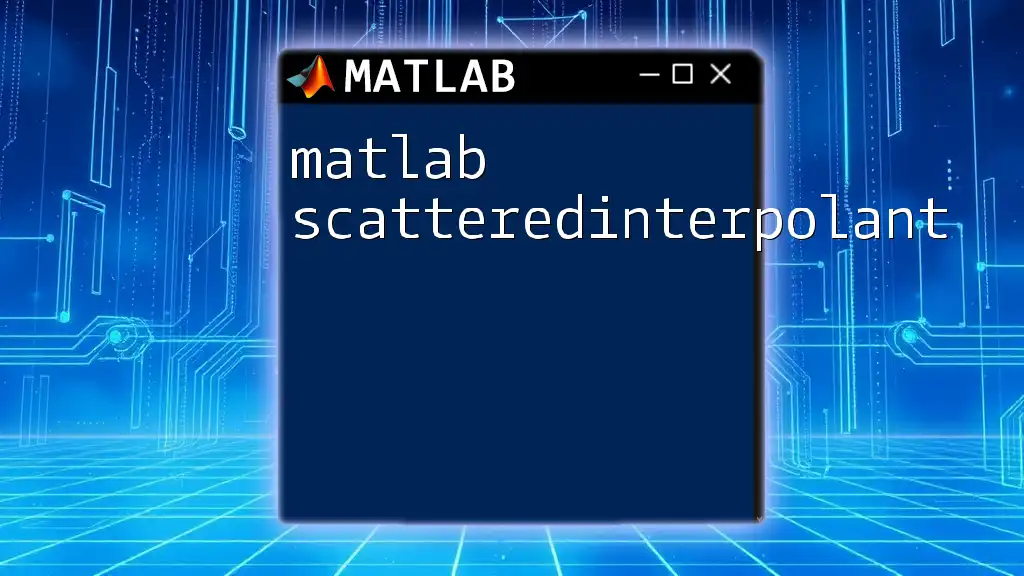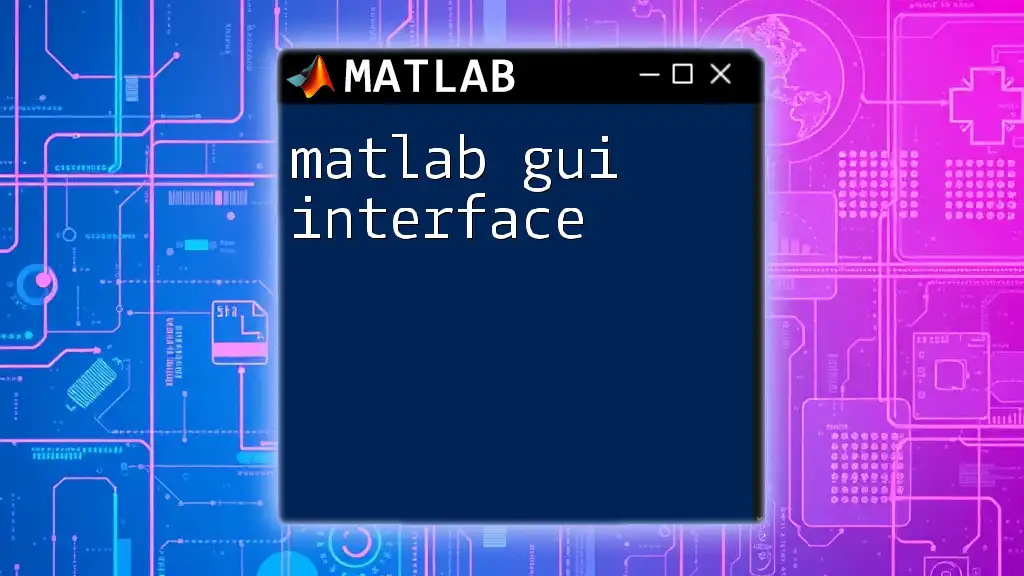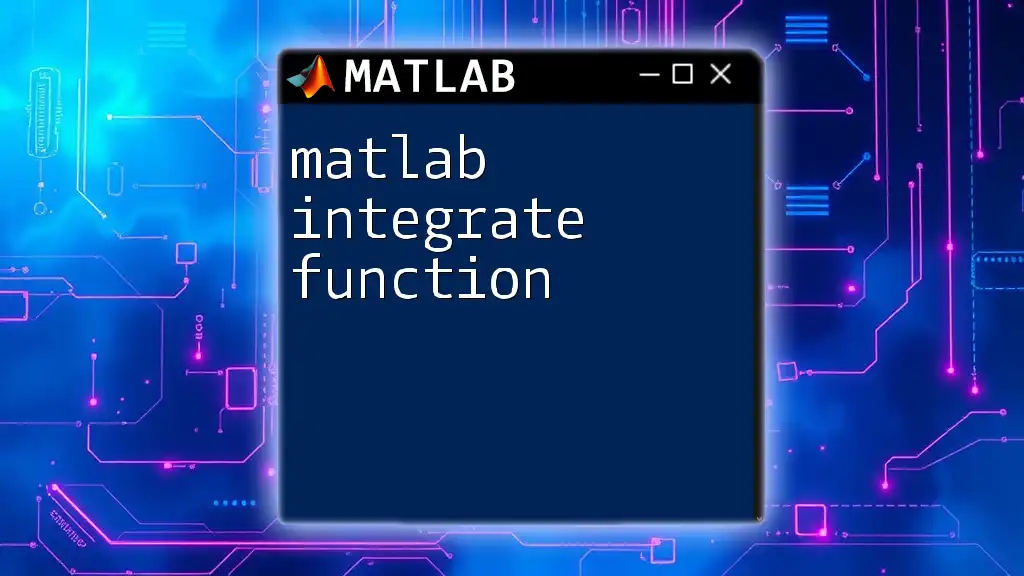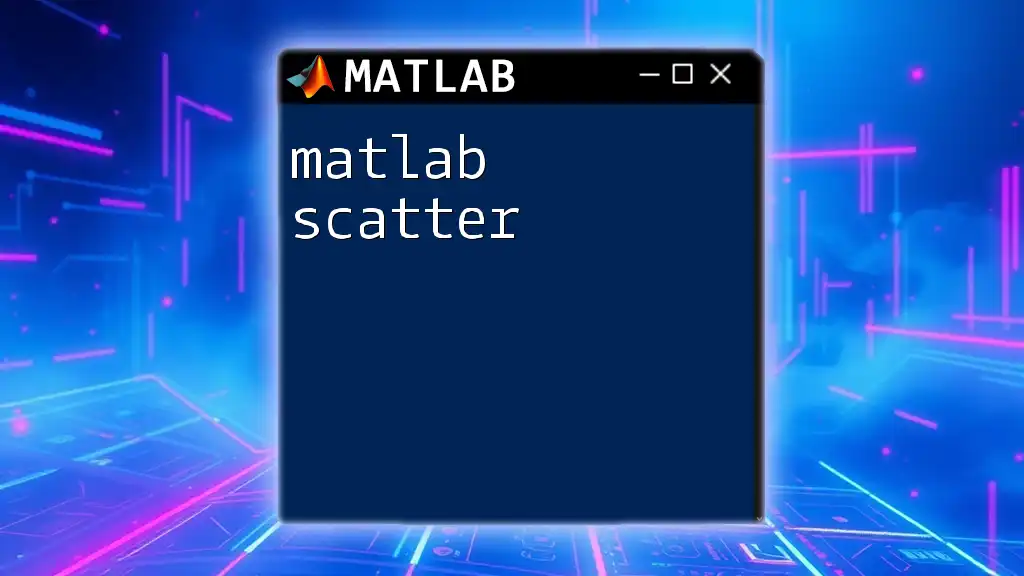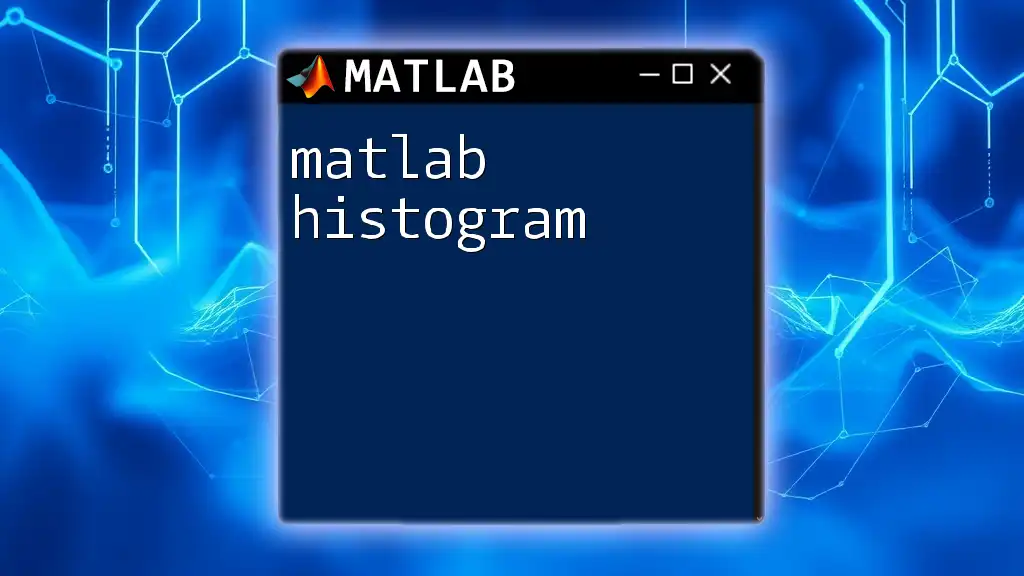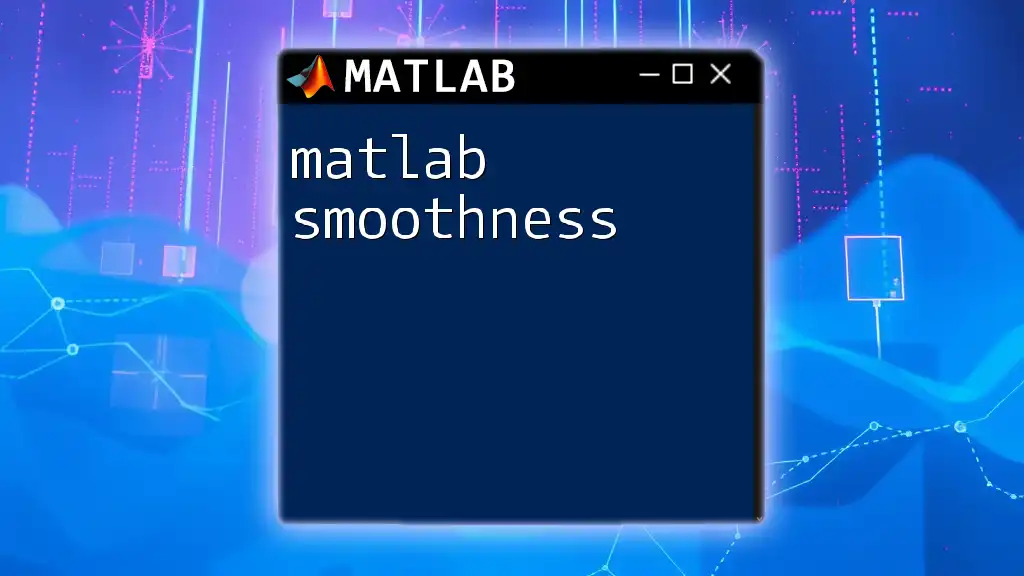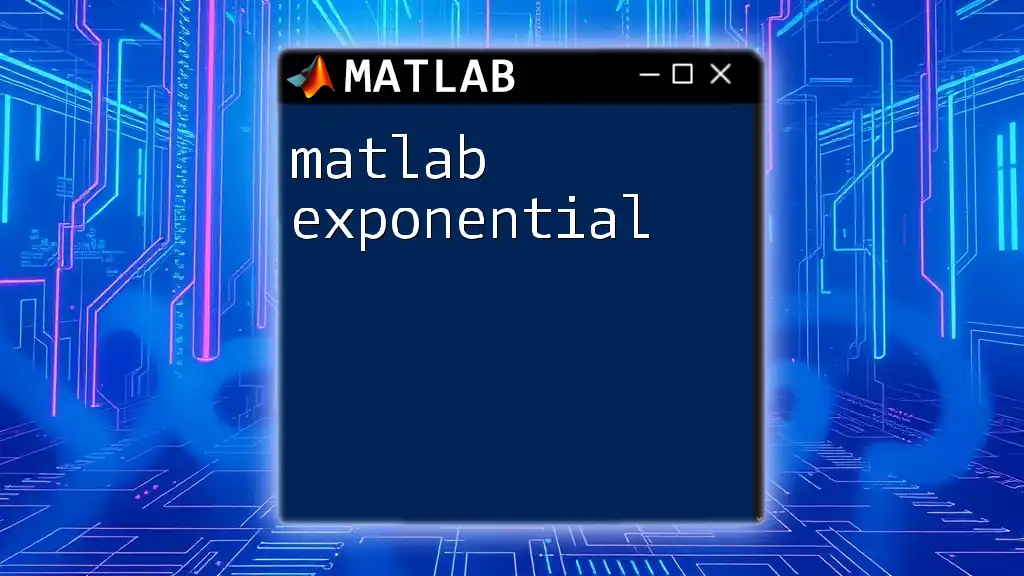MATLAB's symbolic integral functionality allows users to compute exact integrals of symbolic expressions using the `int` function.
Here's a code snippet demonstrating how to perform a symbolic integral in MATLAB:
syms x;
integral_result = int(x^2, x);
disp(integral_result);
What is Symbolic Integration?
Symbolic integration refers to the process of finding the integral of a function in terms of its symbolic representation rather than obtaining a numerical approximation. This method is crucial for tasks requiring precision, such as solving differential equations, modeling physical phenomena, or calculating areas under curves analytically. While numeric integration gives an approximate answer based on numerical methods, symbolic integration provides exact solutions, making it an essential tool in many fields such as engineering, physics, and pure mathematics.
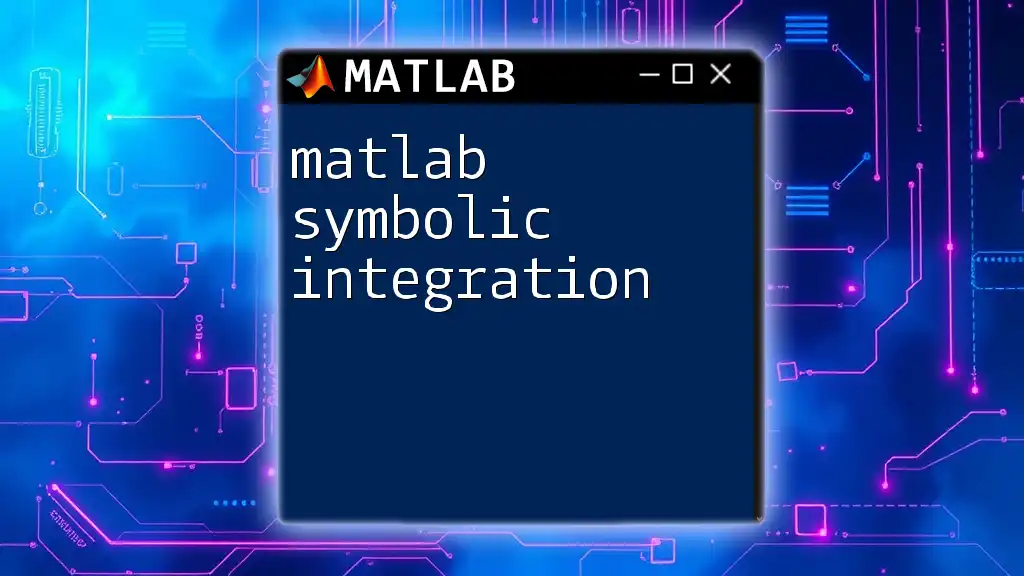
Getting Started with MATLAB Symbolic Toolbox
Installing the Symbolic Math Toolbox
Before you can perform symbolic integration in MATLAB, you must ensure you have the Symbolic Math Toolbox installed. Here’s how to do it:
- Open MATLAB.
- In the Command Window, type `ver` to check if the toolbox is already installed.
- If not listed, you can download it from the MathWorks website or through Add-Ons in MATLAB.
Once installed, you can verify functionality by checking for symbolic variable support.
Creating Symbolic Variables
To use symbolic integration, you must first define symbolic variables in MATLAB. You can do this using the `syms` function, which allows you to declare one or more symbolic variables in a single call.
syms x y
This command creates symbolic variables `x` and `y`, which you can use in equations and calculations. Symbolic variables enable MATLAB to conduct precise algebraic manipulations, laying the groundwork for symbolic integration.

Basic Symbolic Integration Commands
Using `int` Function
The primary function for symbolic integration in MATLAB is `int()`. This function computes the integral of a defined expression. Here’s the basic syntax:
result = int(f, x)
For example, let’s consider integrating a simple polynomial function:
syms x
f = x^2 + 2*x + 1;
integral_result = int(f, x)
The result of this computation will yield the indefinite integral of the polynomial, demonstrating the power of symbolic integration in obtaining an exact solution.
Definite Integrals
Definite integrals provide the area under the curve between specified limits. To compute a definite integral using the `int()` function, you can use the following syntax:
result = int(f, x, a, b)
For example, to compute the definite integral of the sine function from 0 to π:
syms x
f = sin(x);
definite_integral_result = int(f, x, 0, pi)
The output will represent the area under the sine curve between these limits. Understanding definite integrals is crucial as they allow you to quantify results in real-world applications.
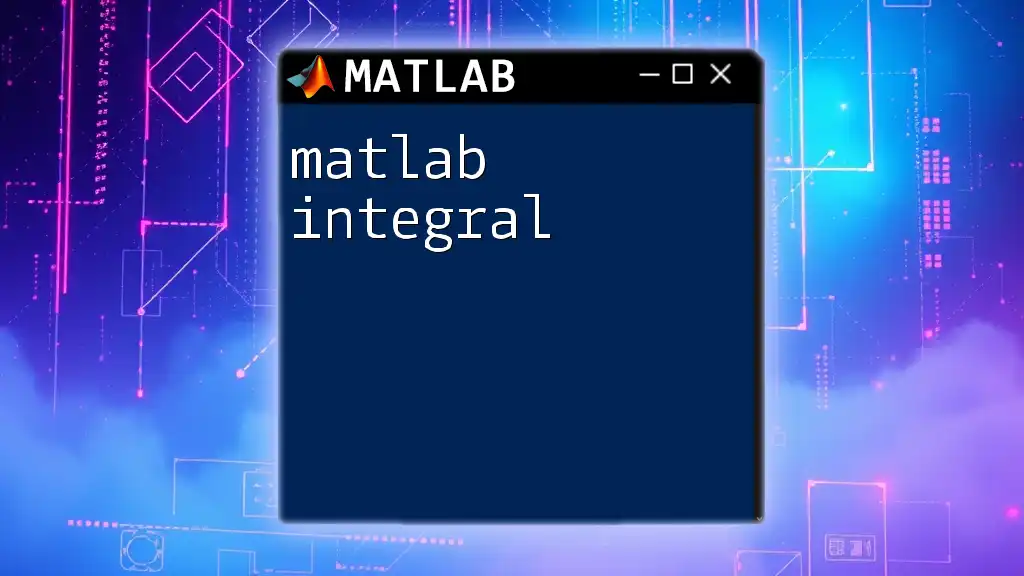
Advanced Symbolic Integration Techniques
Multiple Integrals
Symbolic integration is not limited to single variables; you can extend it to multiple integrals such as double and triple integrals. For a double integral, you can use nested calls to the `int()` function. Consider the following example:
syms x y
f = x*y;
double_integral_result = int(int(f, x, 0, 1), y, 0, 1)
In this case, the function \(x \cdot y\) is integrated first with respect to \(x\), followed by \(y\). This approach is commonly used in multi-dimensional calculus problems.
Integration of Functions with Parameters
Sometimes, functions may contain parameters that are not known until later. MATLAB allows you to perform symbolic integration with these parameters, making your application even more powerful. For example:
syms x a
f = a*x^2;
parameterized_integral_result = int(f, x)
This command computes the integral of \(a x^2\) with respect to \(x\) while leaving \(a\) as a parameter. Such flexibility is beneficial when modeling equations in dynamic systems where certain coefficients may change.
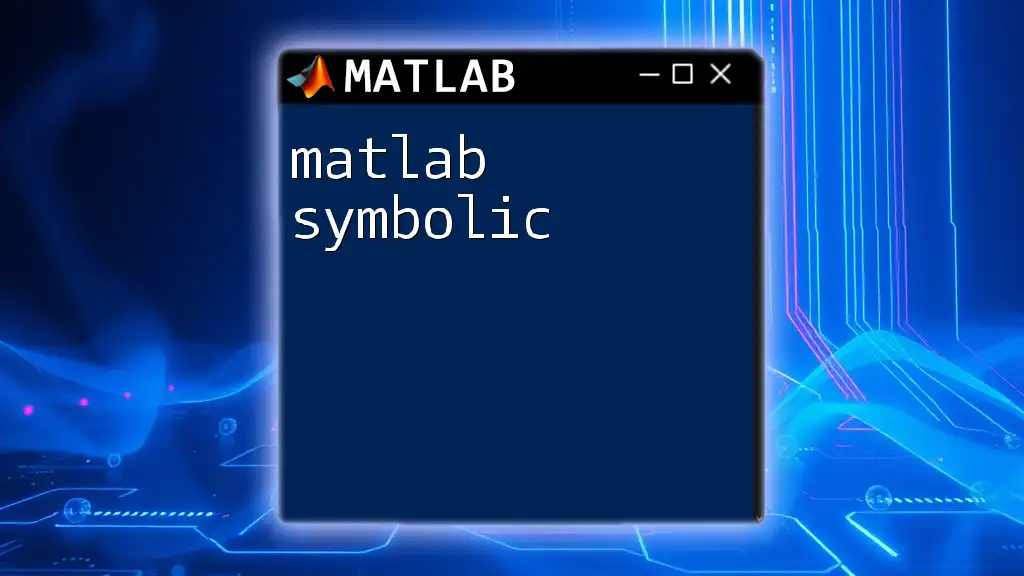
Dealing with Complex Functions
Improper Integrals
Improper integrals occur when the function has an infinite discontinuity or an unbounded interval. For example, to evaluate the improper integral of \(1/x\) from 1 to infinity, you can set limits:
syms x
f = 1/x;
improper_integral_result = int(f, x, 1, inf)
This computation allows you to analyze the convergence of this integral, which is a critical concept in both mathematics and engineering.
Symbolic Integration in Multiple Variables
Integrating functions that involve several variables can be performed similarly. For instance, if you want to integrate a function \(x \cdot y^2\) over two dimensions, the syntax is as follows:
syms x y
f = x*y^2;
multi_variable_integral_result = int(int(f, y, 0, 1), x, 0, 1)
This double integral provides the total accumulation of the function over the defined region, showcasing MATLAB's capability to handle complex integrals effectively.
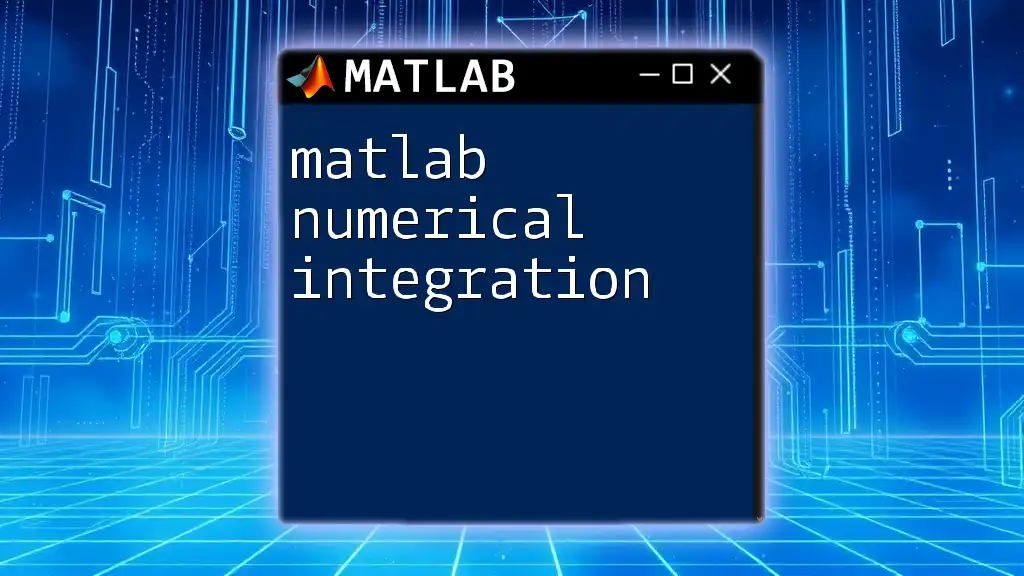
Tips and Best Practices
Checking Your Results
To ensure the accuracy of symbolic integration results, it’s often wise to compare them with numerical approximations. You can do this using the `vpa()` (Variable Precision Arithmetic) function. For instance:
numeric_result = double(int(f, x, 0, 1));
By comparing the symbolic and numerical results, you can confirm the integrity of your analytic solutions.
Common Pitfalls and Troubleshooting
While performing symbolic integration, you may encounter various errors or unexpected results. Common issues include:
- Forgetting to define symbolic variables.
- Incorrect limits during definite integration.
- Integration limits that lead to non-converging integrals.
Always refer to error messages in MATLAB and verify the syntax for the defined expressions to troubleshoot effectively.
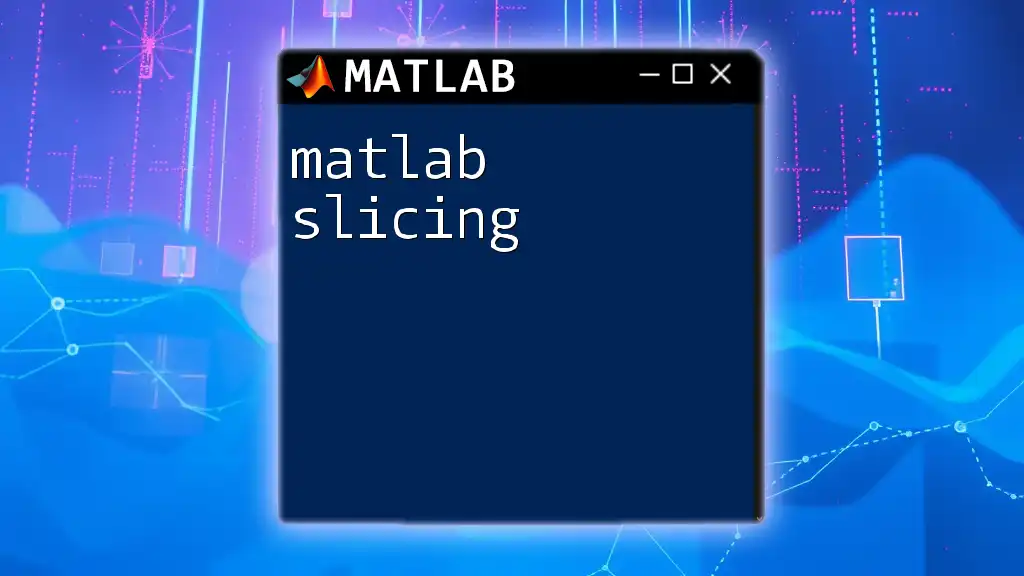
Conclusion
In this guide, we explored the ins and outs of MATLAB symbolic integration. Understanding how to use the `int()` function, create symbolic variables, and perform both definite and improper integrals can significantly enhance your technical skills in MATLAB. As you advance, don’t hesitate to experiment with more complex functions and applications of symbolic integration in your projects.
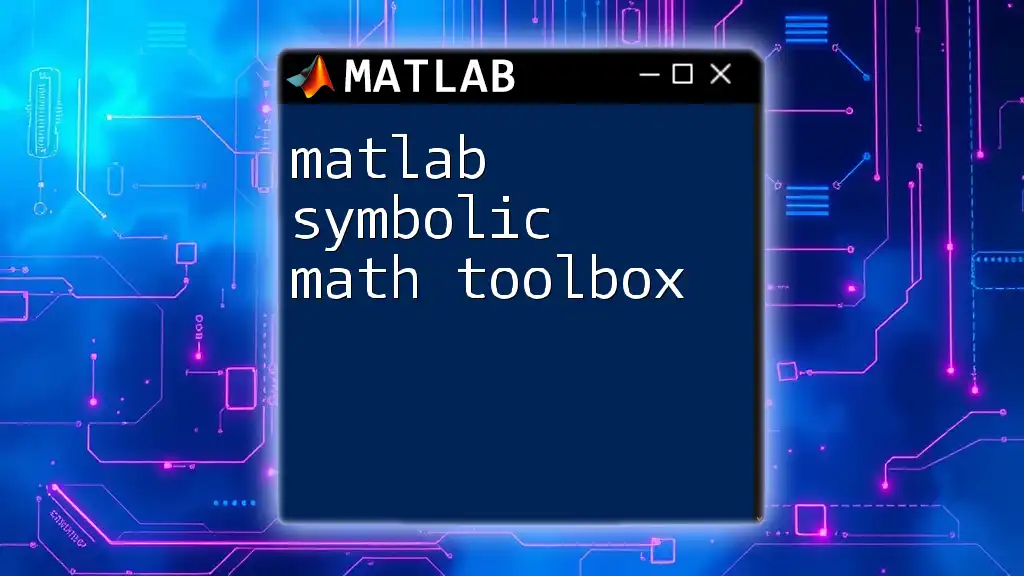
Further Resources
To deepen your understanding of MATLAB’s capabilities in symbolic integration, refer to the official documentation on mathematical modeling and the Symbolic Math Toolbox. Additionally, consider exploring academic resources and tutorials that provide further insight into practical applications of symbolic integration.
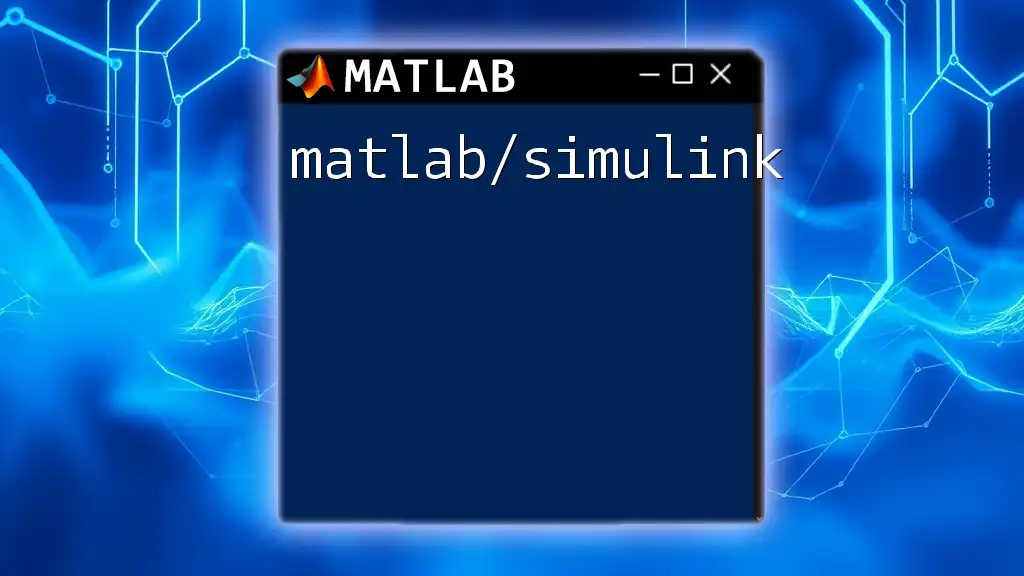
Call to Action
If you're eager to expand your MATLAB skills, consider signing up for our courses focused on symbolic commands. Engage with real-world problems and enhance your analytical capabilities. Happy integrating!

